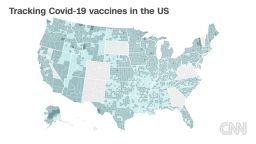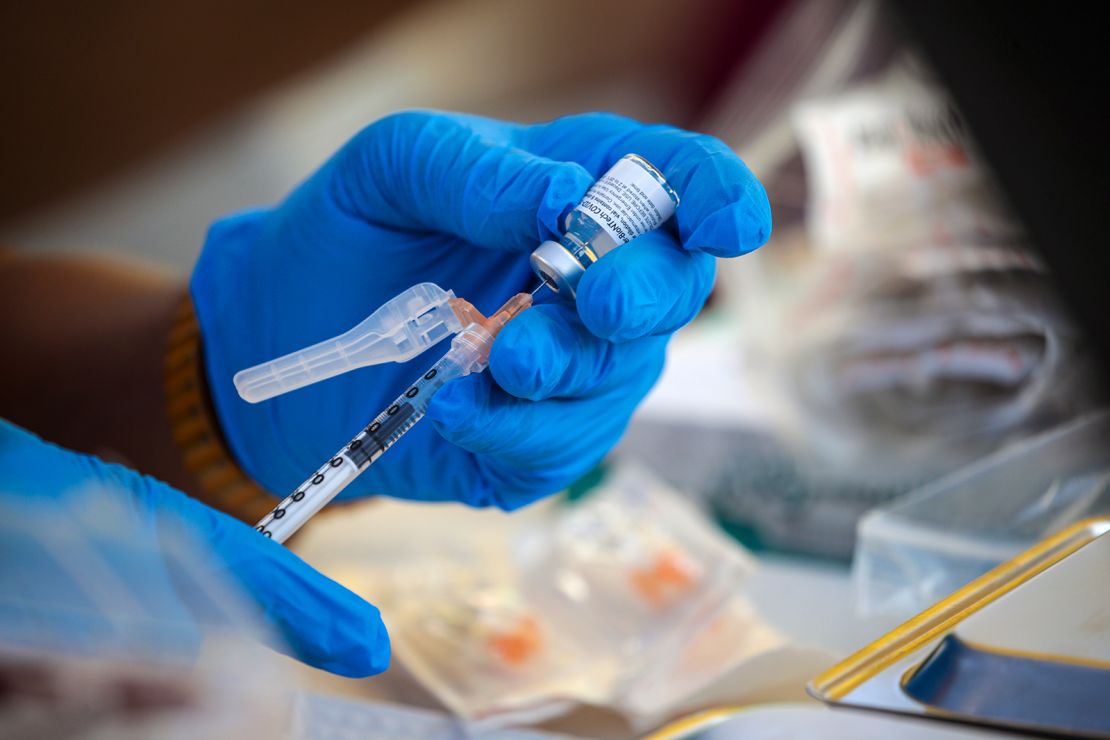The more contagious Delta variant of coronavirus now makes up 83% of sequenced samples in the United States, US Centers for Disease Control and Prevention (CDC) Director Dr. Rochelle Walensky said Tuesday.
“This is a dramatic increase, up from 50% for the week of July 3,” Walensky said in a Senate committee hearing.
Health experts have said the Delta variant is more transmissible than any other identified variant so far. “We should think about the Delta variant as the 2020 version of Covid-19 on steroids,” Andy Slavitt, a former senior adviser to Joe Biden’s Covid Response Team, told CNN last week.
“It’s twice as infectious,” Slavitt said. “Fortunately, unlike 2020, we actually have a tool that stops the Delta variant in its tracks: It’s called vaccine.”
Vaccination rates in the country have stalled though. Less than half of the US population is fully vaccinated, according to CDC data, and the majority of those who are not vaccinated are not at all likely to get vaccinated, according to a poll published Tuesday by Axios-Ipsos.
A quarter or less of those who are unvaccinated said that they would be likely to get the vaccine under certain circumstances, according to the poll, which was conducted July 16 to 19 and made up of a nationally representative sample of 1,048 general population US adults.
If many of those who are holding out do not get inoculated, Dr. Anthony Fauci said, the US can expect a “smoldering” outbreak for “a considerable period of time.”

The rise of the Delta variant comes as the US sees a new uptick in Covid-19 cases and an increase in hospitalizations and deaths, especially in pockets of the country where vaccination rates remain relatively low.
The average of new daily cases this week is up 66% from last week and 145% from two weeks ago, as cases rise in 46 states, according to data from Johns Hopkins University. In addition, hospitalizations are up 26% from last week.
About 22% of the US population – nearly 73 million people – lives in a county considered to have “high” Covid-19 transmission, according to data published Monday by the CDC.
This is about 10 times what it was in early June, when less than 3% of the population lived in such counties.
The CDC considers a county to have high transmission if there have been 100 or more cases of Covid-19 per 100,000 residents or a test positivity rate of 10% or higher in the past seven days.
According to the latest CDC data, about 5% of the US population lives in a county considered to have “low” transmission, defined by the CDC as fewer than 10 new Covid-19 cases per 100,000 residents and a test positivity rate of less than 5% in the past seven days.
Test positivity rate is one of two indicators used by the CDC to assess community transmission levels. But the number of daily coronavirus tests have dropped off – down 34% from a month ago – according to data from the US Department of Health and Human Services. The CDC did not respond to CNN’s requests to learn more about this metric.
Vaccines are effective against the Delta variant, data shows
The most recent data from Israel evaluating effectiveness of the Pfizer/BioNTech mRNA vaccine against the Delta variant found the vaccine to be 64% protective against infection, and that the vaccine is 93% effective in preventing severe disease and hospitalizations.
Other studies indicate that the Moderna and Johnson & Johnson vaccines are also effective against the Delta variant.
And 99.5% of deaths are among the unvaccinated, US Surgeon General Dr. Vivek Murthy told CNN’s Dana Bash on “State of the Union” on Sunday – a figure cited by the CDC earlier in the month.
Already some hospitals are again being overwhelmed by Covid-19 patients, Murthy said Monday.
“I am heartbroken to see just how hard (physicians are) working – how exhausted they are,” Murthy told CNN’s Anderson Cooper. “Many of them are suffering with depression, anxiety, post-traumatic stress disorder, suicidal ideation, as a result of the stress that they have endured during this pandemic.”
Having been tricked by the virus before, Murthy says now is the time to be cautious.
“There have been multiple times when we have been fooled by Covid-19, when cases went down and we thought we were in the clear and then cases went up again,” Murthy said. “It means we shouldn’t let down our guard until cases not only come down but stay down, and right now cases are actually going up. Cases are going up, hospitalizations are going up, death rates are ticking up.”
Murthy urged Americans to get vaccinated – if not for themselves then for health care workers who need protection from burnout and children who are not yet eligible for the protection provided by the vaccine.
Even if parents are vaccinated, wearing a mask in areas of high transmission risk is “the right thing to do,” he said. Murthy – the father of two children, ages 3 and 4 – said he takes such precautions because “I want to take every possible measure to protect my child.”
“Our kids who cannot get vaccinated, they depend on us being vaccinated to protect them from the spread of the virus. We are their shields,” Murthy said. “Even if you don’t want to do it for yourself, consider getting vaccinated to protect the children in your community. They are depending on us.”

Pediatrics association recommends masks in schools
In addition to protecting children from infection, many experts and officials have stressed the importance of getting them safely back into the classroom.
Most children are at a lower risk than adults for severe disease from Covid-19, and the benefits of learning in a classroom outweigh the risks, said Dr. Greta Massetti, a member of the CDC’s Covid-19 Emergency Response.
“However,” she added, “for some families, particularly those with children or family members who are at increased risk of severe illness from COVID-19, or who cannot get vaccinated, those families might be more comfortable with a remote option this fall.”
On Monday, the American Academy of Pediatrics released new guidance for schools that supports in-person learning and recommends universal masking in schools for everyone over the age of 2.
“The AAP believes that, at this point in the pandemic, given what we know about low rates of in-school transmission when proper prevention measures are used, together with the availability of effective vaccines for those age 12 years and up, that the benefits of in-person school outweigh the risks in all circumstances,” the guidance said.
The guidance differs some from the CDC recommendations, which advise masks be worn indoors in schools by all individuals who are not fully vaccinated.
But Fauci said the CDC leaves flexibility for localities to make judgment calls based on their situation.
And when there is a high rate of virus spread in a community and a low proportion of vaccinated people, “you really want to go the extra step, the extra mile, to make sure that there’s not a lot of transmission, even breakthrough infections among vaccinated individuals,” Fauci said. “They just want to be extra safe.”
There are some states, including Connecticut, Hawaii, New Mexico, New York, Virginia, and Washington, that follow the AAP guidance to require masks among K-thru-12 students regardless of their vaccination status.
But an updated CNN analysis has found that at least nine states – Arkansas, Arizona, Georgia, Iowa, Oklahoma, South Carolina, Texas, Utah and Vermont – have enacted legislation that prohibit districts from requiring masks in schools.
CNN’s Deidre McPhillips, Michael Nedelman, Lauren Mascarenhas, Steve Almsay Sarah Braner, Naomi Thomas, Jacqueline Howard and Elizabeth Stuart, Cheri Mossburg, Kay Jones and Christina Bowllan contributed to this report.




